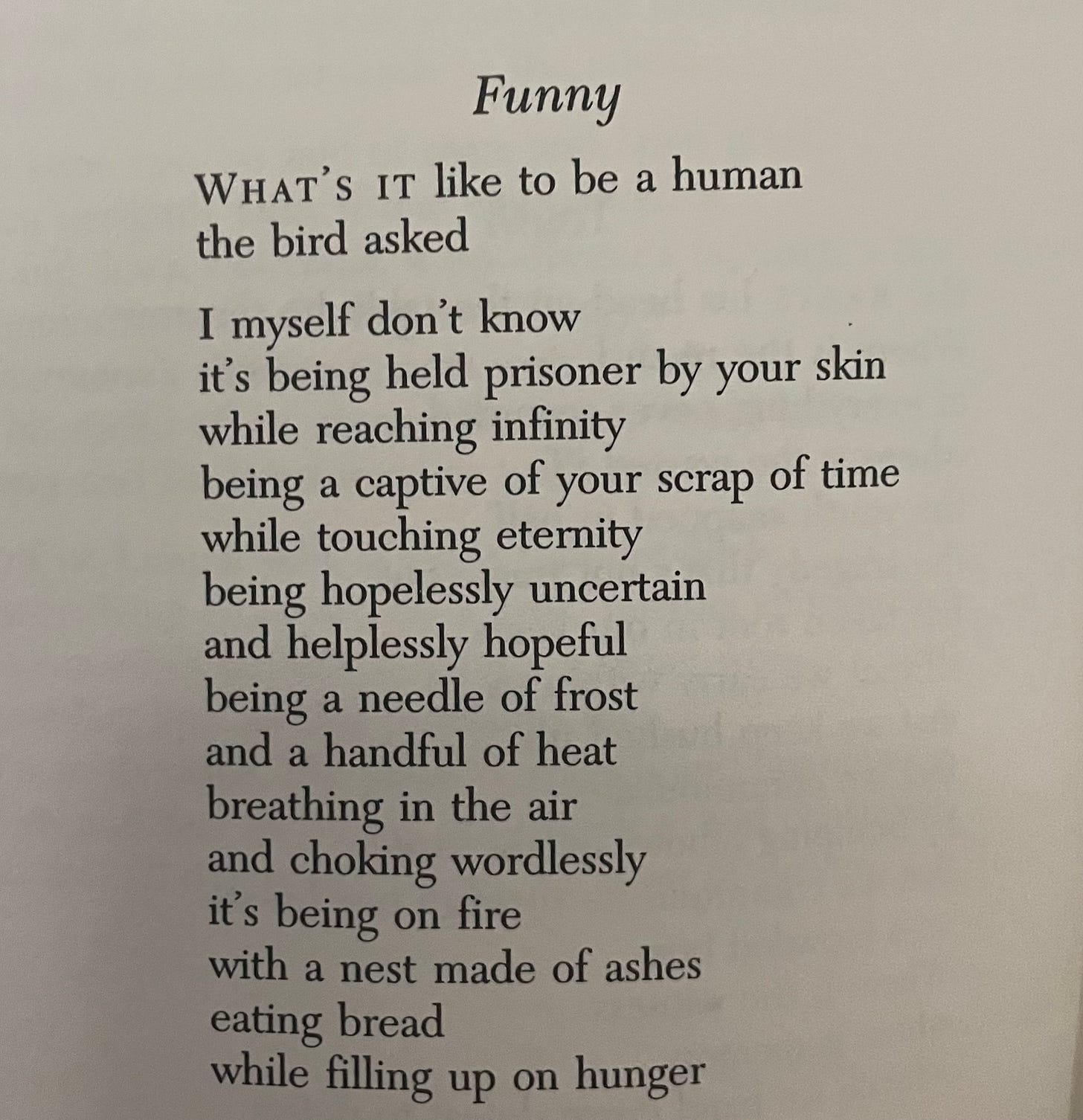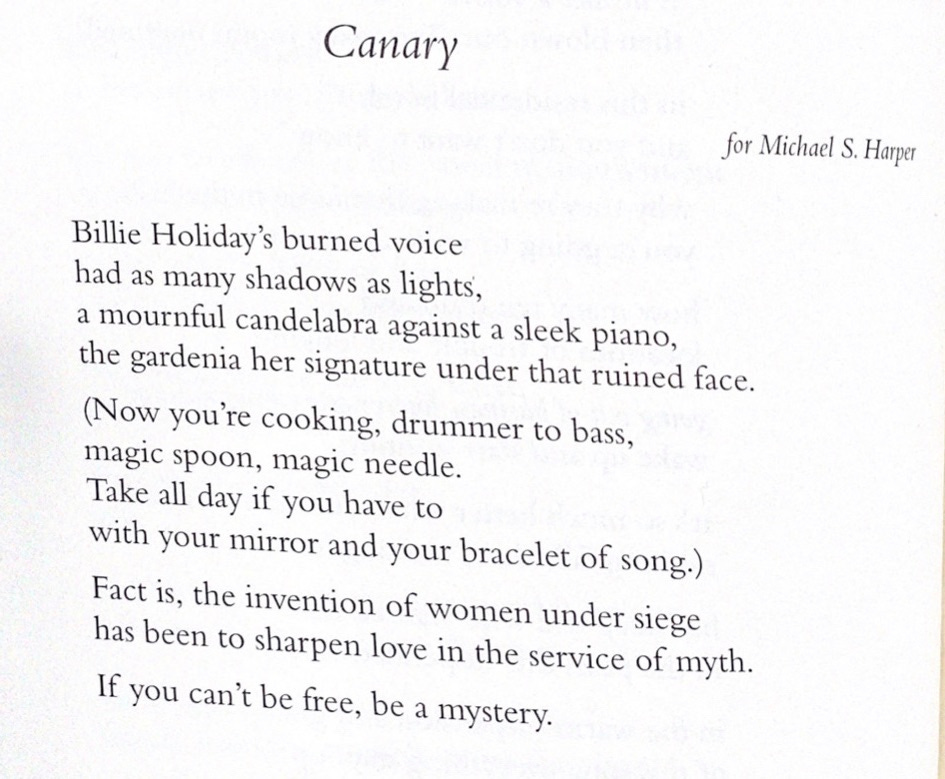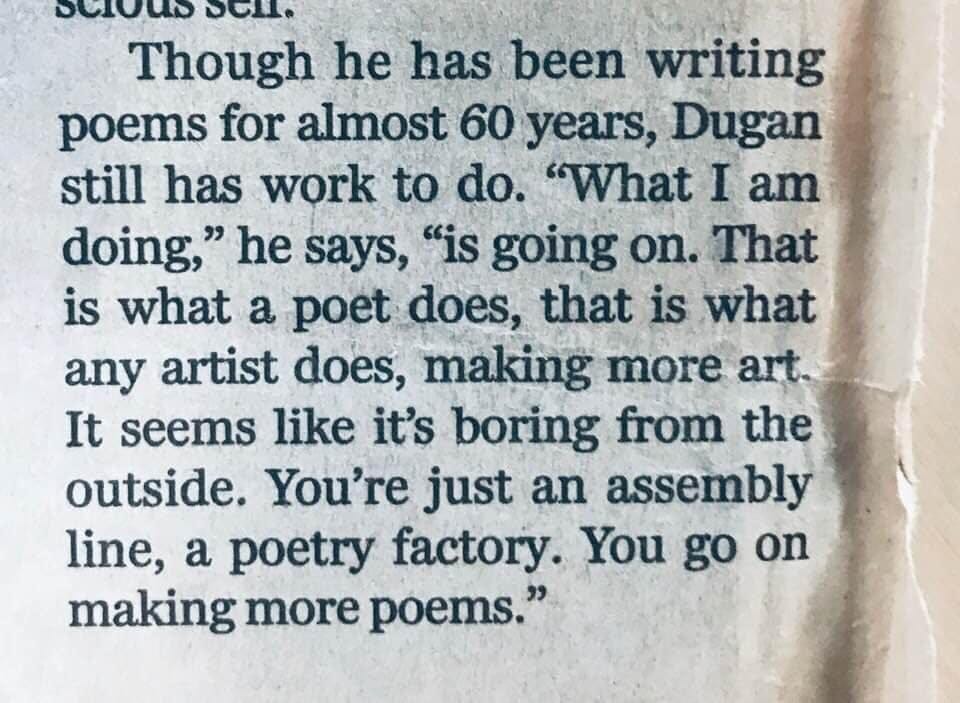Louise Glück:
I think the poem is a communication between a mouth and an ear—not an actual mouth and an actual ear, but a mind that sends a message and a mind that receives it. For me, the aural experience of a poem is transmitted visually. I hear with my eyes and dislike reading aloud and (except on very rare occasions) being read to. The poem becomes, when read aloud, a much simpler, sequential shape: the web becomes a one-way street. In any case, the knowledge, or hope, that the reader exists is a great solace.
Miklós Radnóti (trans. Steven Polgar, Stephen Berg, and S.J. Marks):
James Baldwin:
Write. Find a way to keep alive and write. There is nothing else to say. If you are going to be a writer there is nothing I can say to stop you; if you’re not going to be a writer nothing I can say will help you. What you really need at the beginning is somebody to let you know that the effort is real.
Anna Kamieńska (trans. Stanisław Barańczak and Clare Cavanagh):
Rita Dove:
Alan Dugan:
Alan Dugan:
About Sean Singer
Sean Singer Editorial Services
Subscribe to The Sharpener
The paid-subscriber version of The Sharpener includes craft pieces on literary fixes, deep dives into poets on their birthdays and memorials, information about professional literacy and labor issues for writers, and detailed citations and analyses of the poems I’m reading.









